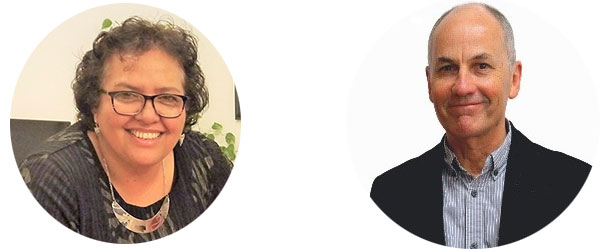Co-chairs’ introduction
The Wellington Regional Skills Leadership Group is pleased to bring you its first regional workforce plan. This is a plan for all who live and work in our region, whether your home is Kāpiti, Wairarapa, Porirua, Hutt Valley or Wellington City.
On this page

Our group was appointed by Government last year to find ways to better meet our region’s future labour market and workforce needs. We have been exploring the nature of our region’s economy, its organisations and people. We see the opportunity to build a strong region by connecting and working together with others to achieve a workforce that will enable all our communities to flourish.
We would like to acknowledge the many people who have contributed to our work so far. We have heard from community organisations, businesses, Iwi Māori, workers and unions, and training providers; all of you have given your time generously to help us create a plan for an inclusive and thriving region.
We are grateful to the mana whenua of this region and their representatives who have joined us on this journey, bringing the values and priorities of Iwi and of mātāwaka to this work. Together, we work as partners for all in this region, and seek to actively reflect Te Tiriti o Waitangi in our mahi.
We’re guided on our journey by our long-term vision, in which “We work in partnership for a skilled and inclusive workforce doing quality work to cultivate innovation, prosperity and resilience for all in our region. Mā pango, mā whero, ka oti ai te mahi”.
Our task is complex, due to our region’s size and diversity. The needs of our sub-regions can be easily dominated by the volume of our cities. We have been deliberate in considering all parts of our region, identifying common ground and strategic opportunities.
Te Whanganui-a-Tara, Wellington is facing real challenges right now. Covid 19 has put huge pressure on our communities, learners, workers, organisations and businesses, especially our smaller enterprises. There are significant labour shortages and inequities remain. Many people are seeking employment, or looking for better employment, with pay and conditions that enable them to thrive. Pathways for skill development and progression are unclear, and often, good jobs aren’t particularly visible to people as they make training decisions.
We work in partnership for a skilled and inclusive workforce doing quality work to cultivate innovation, prosperity and resilience for all in our region. Mā pango, mā whero, ka oti ai te mahi.
We are also looking ahead to the challenges and opportunities of the future. How can we plan for an aging workforce and a growing youth population, rapid changes in technology, the impact of climate change? What future skills will we need in our region and how should we structure our work?
We believe we will be most successful when we work together as a region to address our challenges and plan for the future. We are connecting with the Wellington Regional Leadership Committee and WellingtonNZ as they prepare the Regional Economic Development Plan and implement the Wellington Regional Growth Framework. We are connecting with Te Matarau a Māui as the regional Māori Economic Development Strategy is implemented, and we are connecting with workforce development initiatives in Wairarapa, Kāpiti, Porirua, Hutt Valley and Wellington City. We are voicing our region’s needs through the Reform of Vocational Education and bringing them to the attention of Government.
This regional workforce plan is our first step. It’s our plan for the next three years and includes actions we can take together to address challenges now and to position us for the workforce of the future. We have already begun to put our plan into action, and we will refresh it regularly.
As an advisory group, we will draw on our ability to influence, connect and collaborate with our communities on this journey. We invite you to join us as we work to build a skilled and inclusive workforce doing quality work to cultivate innovation, prosperity and resilience for all in our region.
Nau mai, haere mai tātou katoa.

Our co-chairs are Daphne Luke and Glenn Barclay
< Mihi | Part 1: A workforce plan for the Wellington region >

